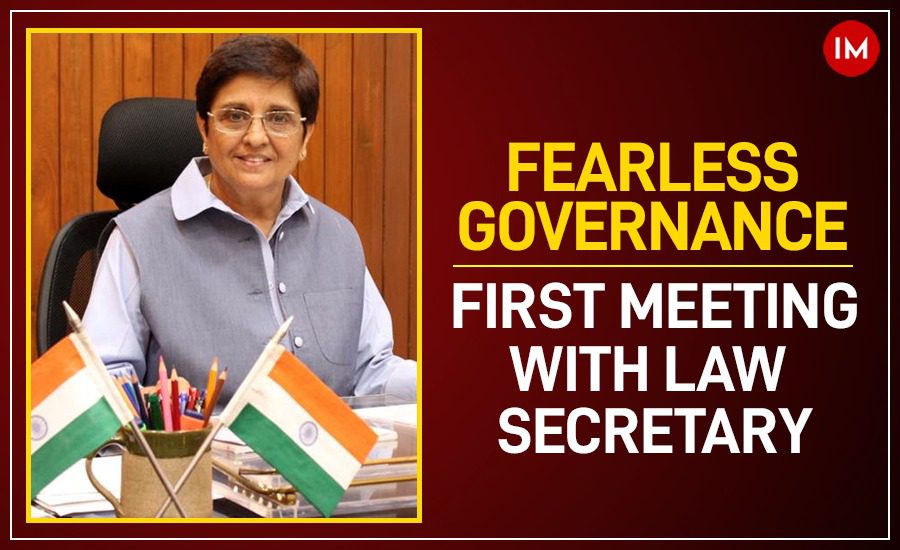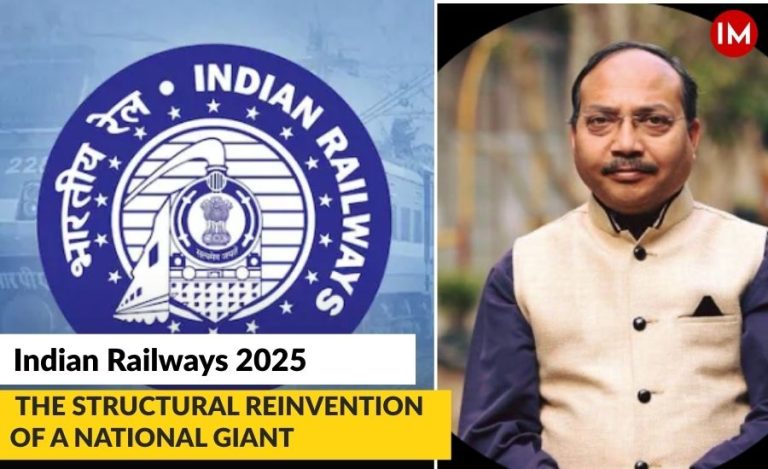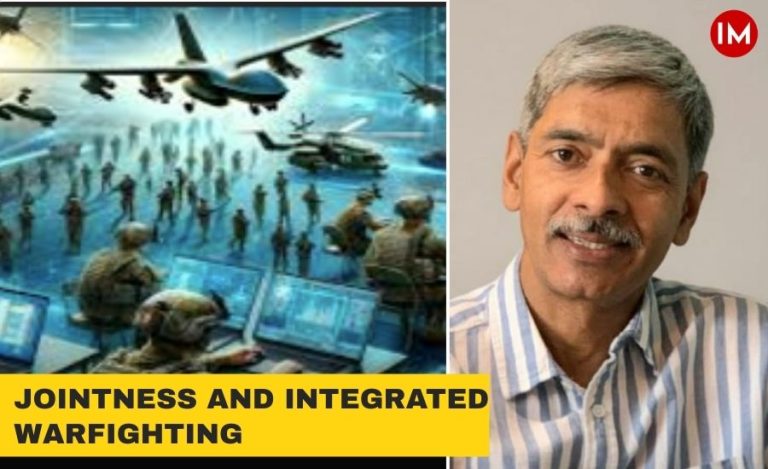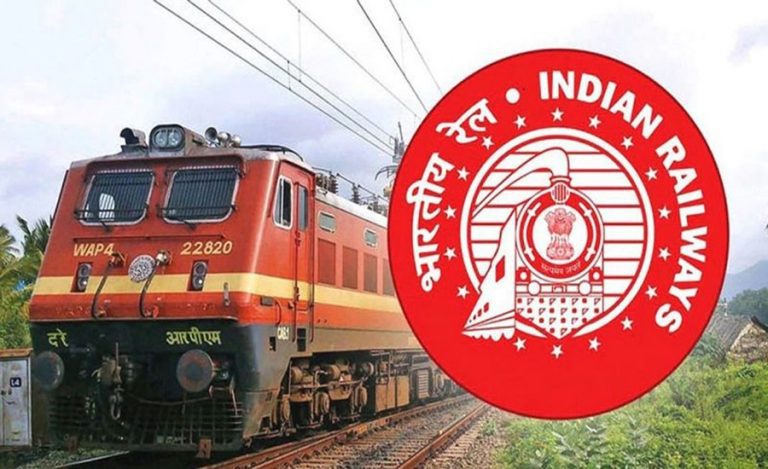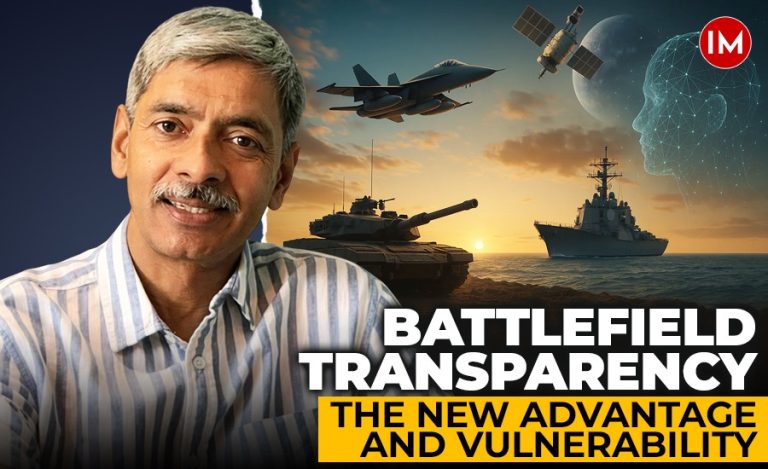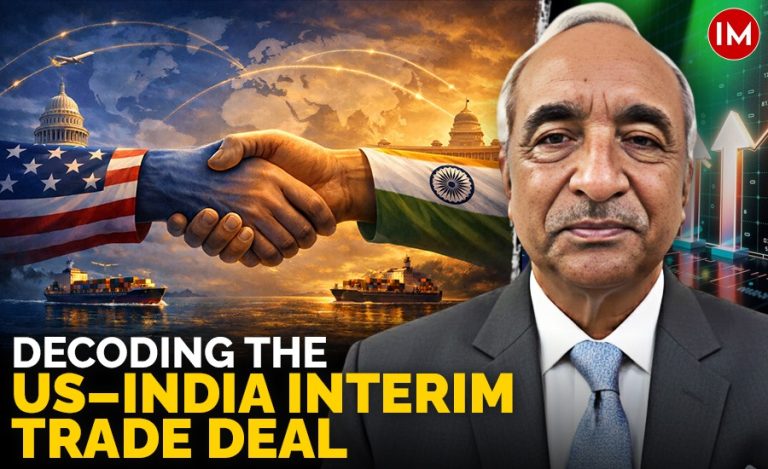Puducherry, known as the French Riviera of India, was liberated on August 16, 1962, fifteen years after India gained independence and officially merged with the Indian Union.
The Indian and French Parliaments formally accepted the ‘Treaty of Cession’, marked as De Jure Day in Puducherry. Puducherry was declared a Union Territory by the 14th Amendment of the Constitution Act, 1962. The UT has a Lieutenant Governor and not a full-fledged Governor like other States in India.
I decided to hold my first meeting with the Law Secretary in my office. I wanted to know and get clarity on my legal powers and responsibilities. Mr. Theva Neethi Dhas, my Secretary, accordingly arranged the meeting on priority with Mr. G. Sendil Kumar, Law Secretary. Mr. Dhas informed him of the purpose; hence he came prepared.
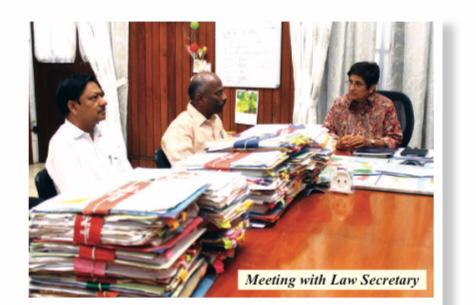
MY QUERY
My query was straightforward. I wanted to know my legal position as a Lt. Governor vis-a-vis the Elected Government, as laid down in the Indian Constitution, the Act of Parliament, the Union Territory Act, the Business Rules, and General Financial Rules authorised and approved by the President of India.
The Law Secretary explained all the relevant provisions. My Private Secretary, Mr. R. Sridharan, gave me a quick read and ready reference note. The briefings and the reading revealed that the buck stopped at my desk on financial, service, and specific policy matters. My position was to function as the representative of the President of India.
SERVICE MATTERS
On Service matters: which means appointments, promotions, recruitments, transfers, creation of posts, disciplinary issues, the constitution of boards and committees, relaxation of any rules, or continuance of temporary positions.
However, under Sub Rule 2 of Rule 47 of Rules of Business of Government of Puducherry, regarding service matters, the Administrator (also read the Lieutenant Governor) shall act in consultation (not aid and advice) with Chief Minister. And in respect of no specific provisions, the Administrator may, if deems fit, either consult his Council or the Chief Minister before exercising his powers or discharging his functions.
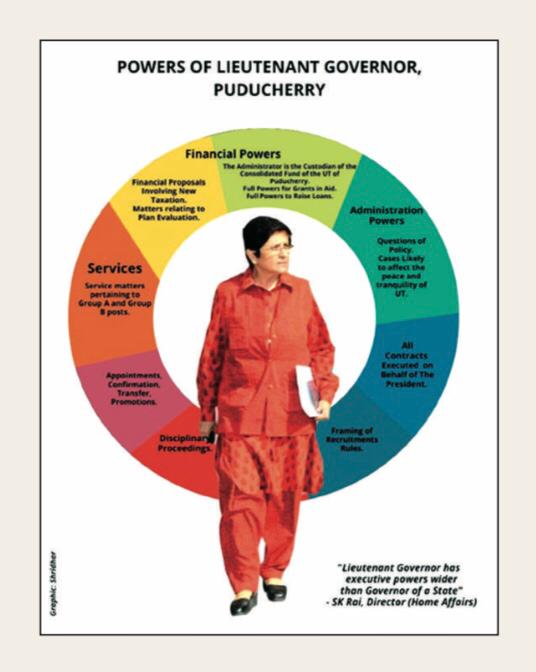
ADMINISTRATIVE POWERS
On Administrative Powers: Under Rule 25 of the Rules of Business, it is essential to take the Administrator’s prior approval before issuing orders. Topics relating to policy, claims that affect or are likely to affect the peace and tranquillity of the Union Territory, financial matters involving new taxation, the point on plan evaluation, and more.
FINANCIAL POWERS
On Financial Powers: The Administrator is the custodian of the Consolidated Fund of the Union Territory of Puducherry. With the approval of the President of India, the Administrator makes payments and withdrawals of money. The Standing Finance Committee has delegated to Administrator to incur expenditure up to Rs. 50 crores. The Administrator has been empowered with full capabilities to sanction grants and loans to autonomous bodies and undertakings on grants-in-aid. Similarly, the clear powers to raise market borrowings and negotiated loans are subject to the Home Ministry’s clearance. These responsibilities in service matters or financials encompassed across the administration.
I am not sure how many knew about the broad legal responsibilities given to this administrator position. As weeks went by, I realised very few knew, including the media. I perceived the enormity of the responsibility of my position. I, fortunately, inherited a very experienced team with institutional memory. We now got down to work in the right earnest knowing the others were in a dilemma.
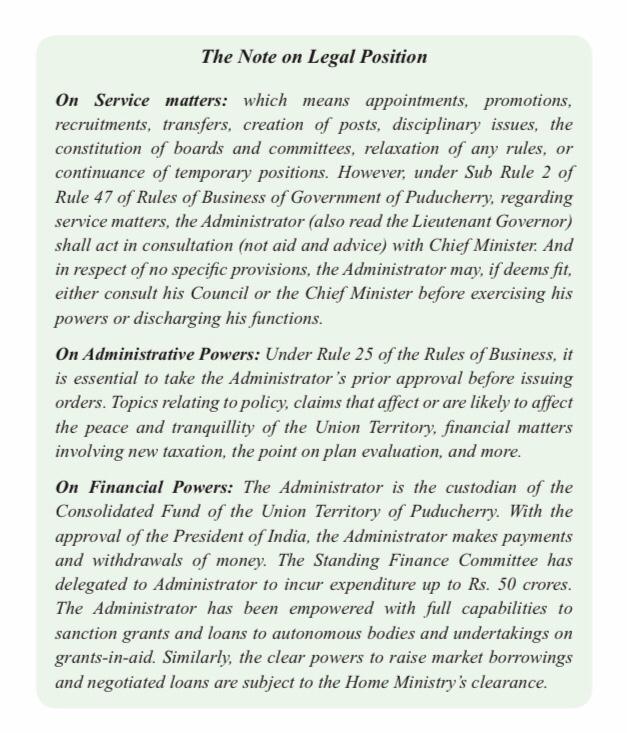
POLITICAL CHALLENGE
I did not anticipate an almighty political challenge that lay ahead at that early time. Very soon in the early weeks of my assuming charge, an awaiting newsman asked me about the possibility of friction between elected Government and the office of the Lieutenant Governor. I replied, “Why should there be any? Financial integrity should always be a priority. Every penny of the Government will be accountable. Following the law ought not to cause friction.”
I think perhaps the media reporter knew what was likely to come. I did not; I was new to the situation. I focused mainly on the letter and spirit of the law, examining files based on the laws, rules, and procedures as explained to me by the Law Secretary. The political establishment had their set ideas, claiming to be legal pundits. I did not know then that it shall cost me my entire tenure of nearly five years to fix this.
It came at a hefty charge on public funds, public time, and untiring efforts. It equally engaged the Government of India. Closer to my departure, existing rules and laws got judicially reiterated by the Honourable Supreme Court and Madras High Court. I left behind a legacy of legal clarity on nettlesome issues.

